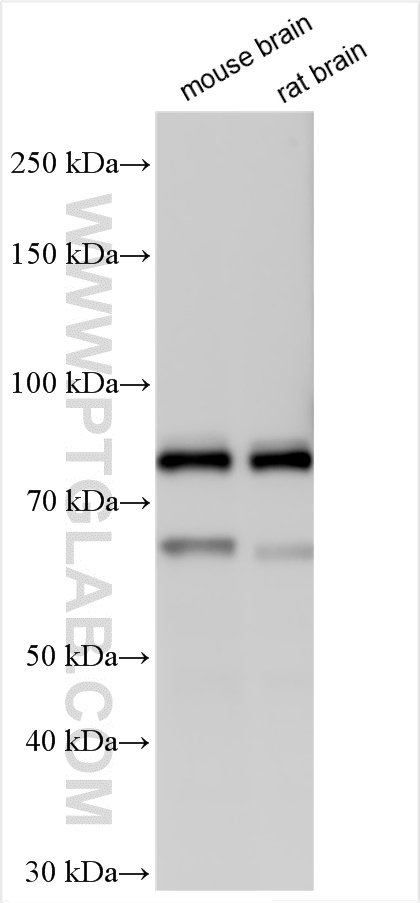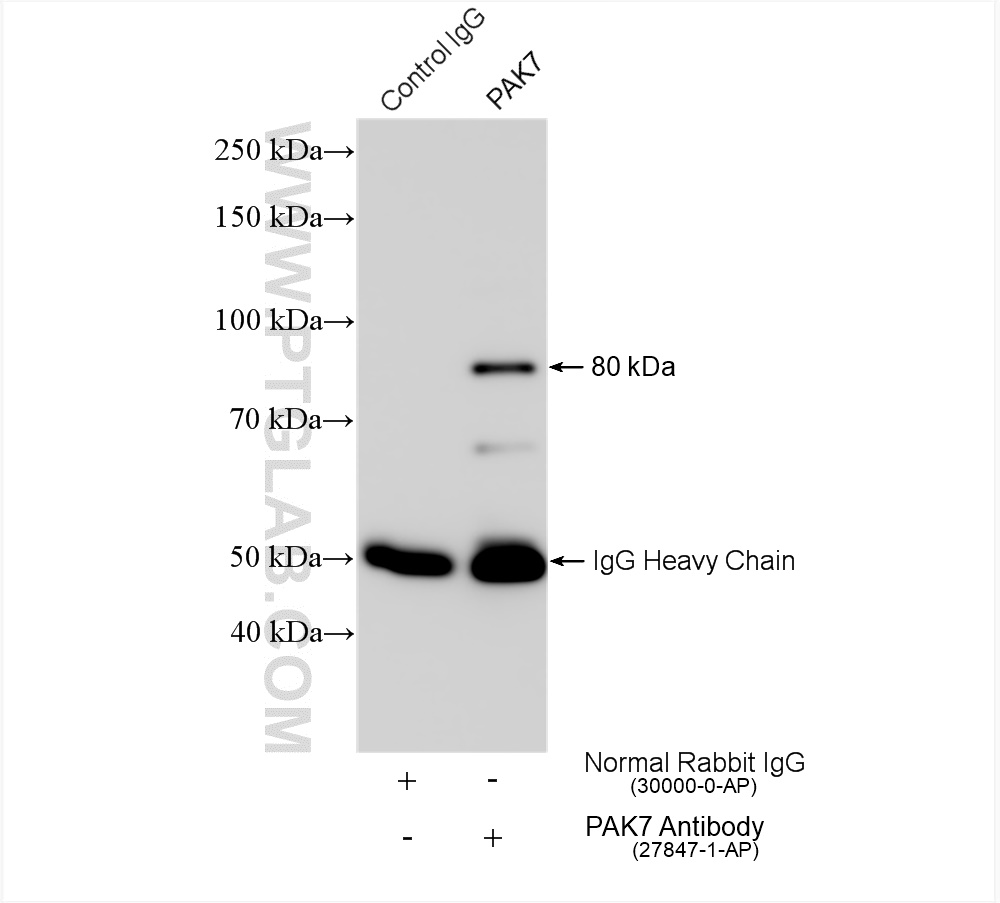验证数据展示
经过测试的应用
| Positive WB detected in | mouse brain tissue, rat brain tissue |
| Positive IP detected in | mouse brain tissue |
推荐稀释比
| 应用 | 推荐稀释比 |
|---|---|
| Western Blot (WB) | WB : 1:1000-1:8000 |
| Immunoprecipitation (IP) | IP : 0.5-4.0 ug for 1.0-3.0 mg of total protein lysate |
| It is recommended that this reagent should be titrated in each testing system to obtain optimal results. | |
| Sample-dependent, Check data in validation data gallery. | |
产品信息
27847-1-AP targets PAK7 in WB, IP, ELISA applications and shows reactivity with Human, mouse , rat samples.
| 经测试应用 | WB, IP, ELISA Application Description |
| 经测试反应性 | Human, mouse , rat |
| 免疫原 | PAK7 fusion protein Ag27283 种属同源性预测 |
| 宿主/亚型 | Rabbit / IgG |
| 抗体类别 | Polyclonal |
| 产品类型 | Antibody |
| 全称 | p21 protein (Cdc42/Rac)-activated kinase 7 |
| 别名 | KIAA1264, p21 activated kinase 5, p21 activated kinase 7, PAK 5, PAK 7, PAK5, PAK7 |
| 计算分子量 | 719 aa, 81 kDa |
| 观测分子量 | 80 kDa |
| GenBank蛋白编号 | BC024179 |
| 基因名称 | PAK7 |
| Gene ID (NCBI) | 57144 |
| 偶联类型 | Unconjugated |
| 形式 | Liquid |
| 纯化方式 | Antigen affinity purification |
| UNIPROT ID | Q9P286 |
| 储存缓冲液 | PBS with 0.02% sodium azide and 50% glycerol, pH 7.3. |
| 储存条件 | Store at -20°C. Stable for one year after shipment. Aliquoting is unnecessary for -20oC storage. |
背景介绍
p21-activated kinase 7 (PAK7), also known as PAK5, is a member of the p21-activated kinase family (Paks). PAK7 is mainly expressed in the brain and testis and has a molecular mass of 81 kDa. It plays an important role in tumorigenesis, invasion and metastasis (PMID: 19165420).
实验方案
| Product Specific Protocols | |
|---|---|
| WB protocol for PAK7 antibody 27847-1-AP | Download protocol |
| IP protocol for PAK7 antibody 27847-1-AP | Download protocol |
| Standard Protocols | |
|---|---|
| Click here to view our Standard Protocols |

